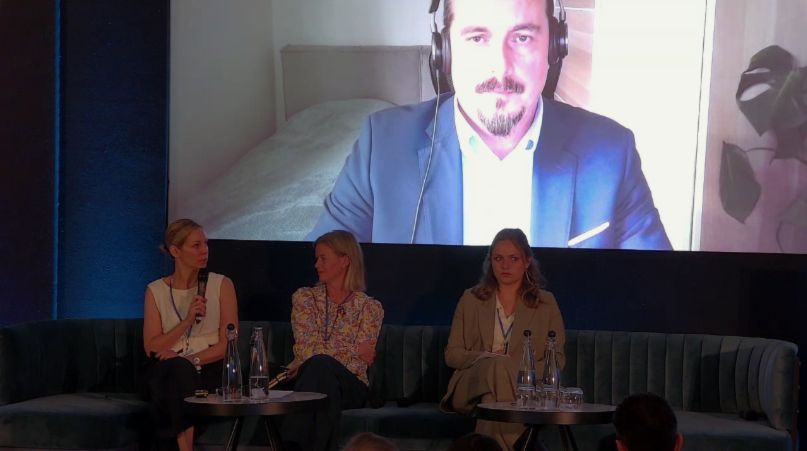CAKE at Carbon Forward Expo 2024
On 8-10 October 2024, the Carbon Forward Expo 2024 took place in London, with Robert Jeszke, Deputy Director of IOS-PIB, CEO of KOBiZE and CAKE, honored to participate. Together with other experts, Robert Jeszke discussed the key challenges surrounding the launch of ETS2 in 2027 and the obstacles this new market mechanism faces.

During his presentation, CEO CAKE highlighted several important issues regarding the functionality of ETS2:
- Key market differences between ETS1 and ETS2: Unlike ETS1, ETS2 will not include early auctions, creating uncertainty about how new market players will hedge their carbon exposure. This uncertainty could result in varied market signals, especially in the early years of ETS2, raising concerns about its overall effectiveness.
- Linking ETS1 and ETS2: The cost of emission reductions in ETS2 will exceed that of ETS1 between 2030 and 2040. This is a natural consequence of integrating these two systems, which may lead to lower marginal costs in the long run.
- The 2040 target and the role of carbon removals: Achieving long-term climate goals will require a greater focus on carbon removals, which will play a crucial role by 2040. Other EU policies will contribute to reducing marginal costs as well.
- Social impact: ETS2 will directly affect households by imposing higher costs, which could lead to social tensions, particularly in countries like Poland and Slovakia, where fossil fuels play a major role in heating. The geographical distribution of costs makes the system socially challenging, requiring additional financial support for affected regions.
- Social acceptance: While ETS2 is a key tool for achieving decarbonization, its success will depend on social acceptance. Western European countries, which are more advanced in their energy transitions, are more supportive of this system. However, Eastern European countries like Poland and Slovakia face higher costs and potentially greater social resistance. Ensuring a fair distribution of the burden is essential to gain broader acceptance.
- The case of Slovakia: Slovakia’s recent refusal to implement ETS2 reflects the challenges EU member states face. This situation should serve as a signal for broader discussions about the implementation of ETS2. Slovakia’s case is unique, but most EU countries are likely to negotiate rather than reject the directive, seeking modifications, extensions, or additional financial support from the European Commission to cushion the economic and social impact on vulnerable households.

 Reset ustawień
Reset ustawień Kontrast
Kontrast Widok
Widok Czytelność
Czytelność Czcionka
Czcionka Znaki
Znaki Interlinia
Interlinia Słowa
Słowa Akapity
Akapity Deklaracja dostępności
Deklaracja dostępności









